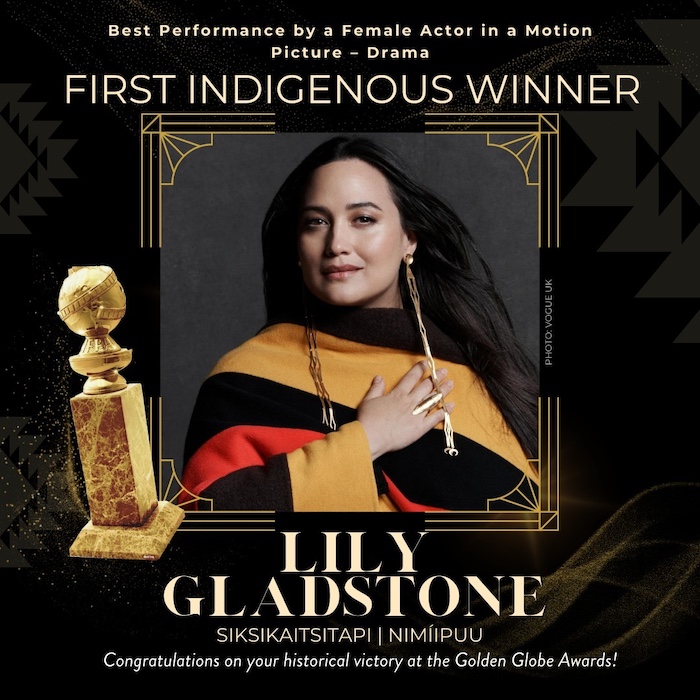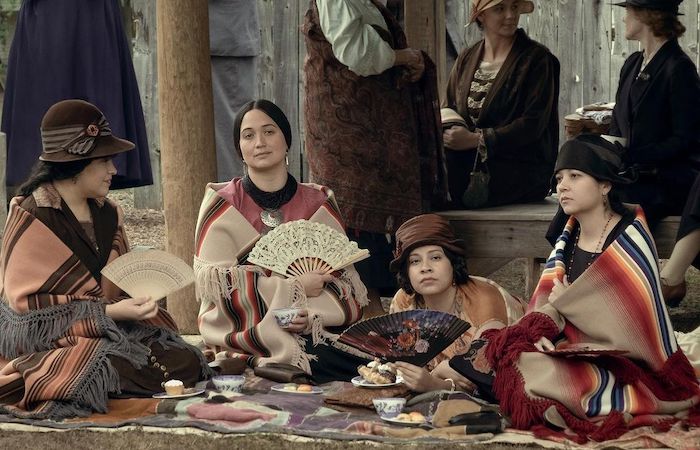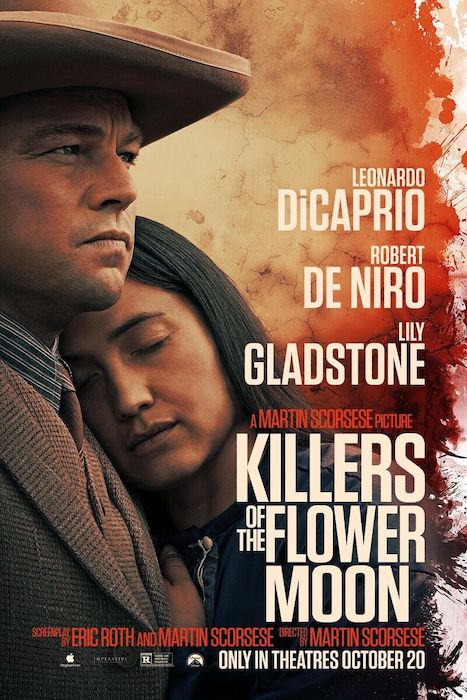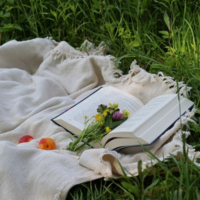TRENDING
Celebs
Lily Gladstone’s Golden Globe win is a triumph for Indigenous portrayal in film

Lily Gladstone became the first Indigenous woman to win the Golden Globe for Best Female Actor in a Motion Picture - Drama on Sunday night, marking a historic win for Indigenous actors in the film industry.
Who's Lily Gladstone?
Lily was raised on the Blackfeet Reservation, aka 1.5 million acres of land in Montana that's home to the state's largest Indian tribe, the Blackfeet Nation. She recently played Mollie Burkhart in Killers of the Flower Moon, a film directed by Martin Scorsese. The movie depicts members of the Osage Nation who were murdered for the oil and mineral rights they held on their reservation in Oklahoma.
Lily accepted her Golden Globe in Blackfeet language, acknowledging the nation that raised her and the community she represents.
"I just spoke a bit of Blackfeet language, the beautiful community nation that raised me, that encouraged me to keep going, keep doing this," she said. "I'm here with my mom, who, even though she's not Blackfeet, worked tirelessly to get our language into our classroom so I had a Blackfeet language teacher growing up."
Authentic Representation
Indigenous communities have long been underrepresented in mainstream media (srsly, we're still waiting for a Leah Clearwater Twilight origin story). Lily's recognition at this year's ceremony signifies a turning point in the film industry, reflecting a growing awareness and appreciation for authentic Indigenous representation on screen.
Lily ended her speech with a dedication to Indigenous children with a dream, proving that her win is more than just an individual achievement—it's a collective victory for minority communities who've struggled for representation in the film industry.
"Thank you to all of you, and this is for every little res kid, every little urban kid, every little Native kid out there who has a dream, who is seeing themselves represented and our stories told by ourselves in our own words, with tremendous allies and tremendous trust with and from each other," Lily said onstage.
Breaking Stereotypes
The film industry frequently marginalizes Indigenous stories, reducing them to one-dimensional stereotypes or historical clichés (looking at you, Hollywood Pocahontas). Lily raised awareness to this fact as she mentioned how Indigenous actors would speak lines in English before the lines were played backward post-filming to act as Native languages in the final film.
She also acknowledged Martin Scorcese's allyship in collaborating with the Osage Nation to evolve Indigenous portrayal in media. Lily's win acts as a call for non-Native filmmakers to embrace Indigenous creatives, including them at the beginning of the process to allow them to tell their own stories in their own voices.
The Platform for Change
Native representation in cinema remains low, but Lily's success encourages hope for more movies that authentically explore Indigenous POVs.
Cara Jade Myers, Lily's co-star from Killers of the Flower Moon, has previously expressed her excitement for the growing demand for Native authenticity following the release of the film. "I'm excited that people are demanding authenticity," she told W Magazine. "It's so important for people to see that Native Americans are not a monolith and that we are still here—we're still thriving, we're still making amazing art, and we're still telling our stories."
Lily's win paves the way for future opportunities to embrace Indigenous talent in Hollywood. But let's be clear: The importance of Native representation extends way beyond awards ceremonies. And we're hoping for more authentic, Indigenous stories not just on the silver screen, but in books and TV shows, too.
All GIFs via Giphy
Slider image: @lilygladstone
Top image: @illuminative

 become a contributor
become a contributor




















